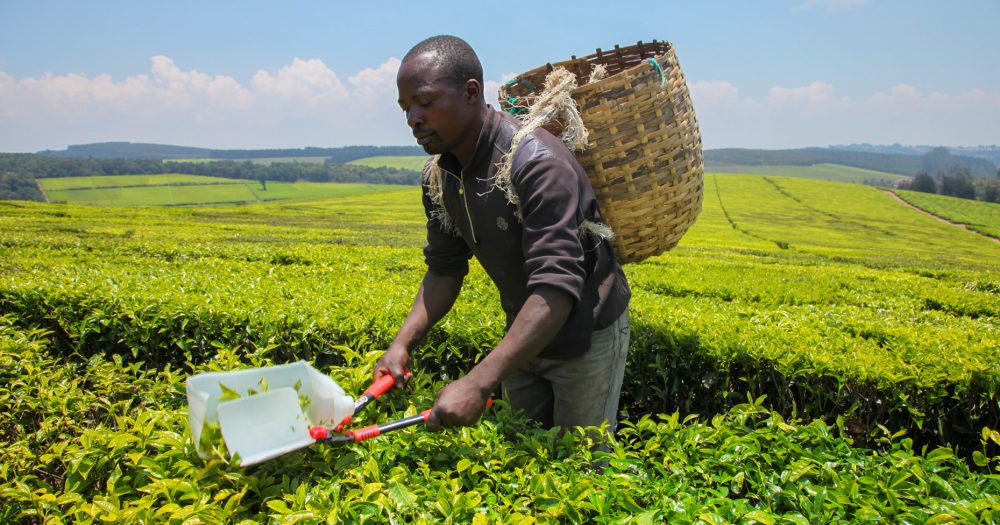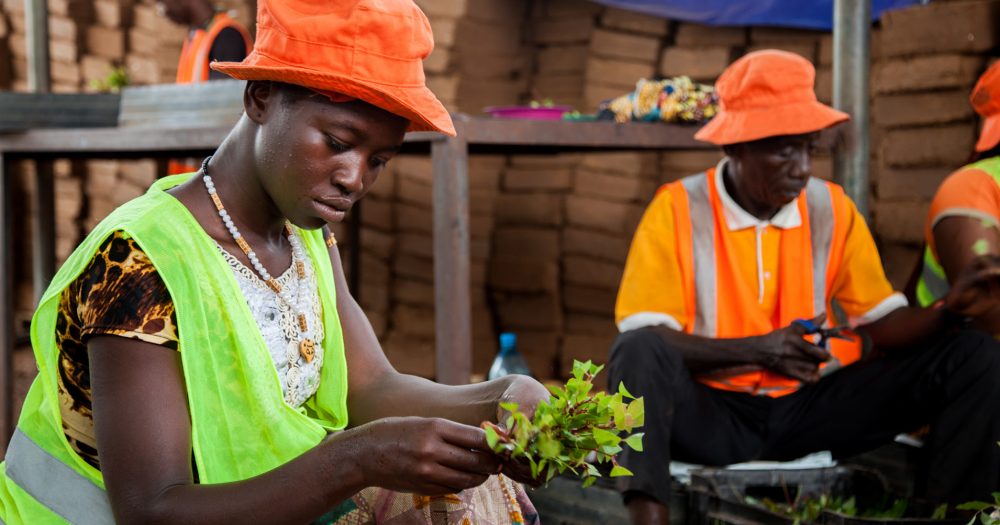This investment was made when British International Investment was named CDC Group.
Our investment
Description of the investment.
Description of the investment.
We provided Tier 2 capital, which continues to be scarce in Africa, to Commercial International Bank. We are among the first bilateral development finance institution to be given clearance to provide Tier 2 capital to Egypt’s banking sector. The investment was part of our efforts to support capital markets and banking ecosystems, to enable African economies to weather the impact of COVID-19.
Impact information
Applies to investments made from 2019 onwards. The tabs in this section define what we expect to achieve through the investment, assessing the potential impact of the investment against six dimensions of impact. You can find more details on our methodology of assessing impact here.
Applies to investments made from 2019 onwards. The tabs in this section define what we expect to achieve through the investment, assessing the potential impact of the investment against six dimensions of impact. You can find more details on our methodology of assessing impact here.
What?
| Impact |
|---|
Strengthen the capacity of domestic financial institutions by expanding access to FX for clients (8.10); Improved economic opportunities through increased availability of finance (SDG 8.1, 8.5, 9.3) |
|
|
How?
| How? |
|---|
|
Providing tier-2 debt to the second-largest domestic financial institution in Egypt, capital which is only available from a restricted list of IFIs and MDBs approved by the central bank. This capital will contribute hard currency capital to Alex’s capital base, protecting it against any potential currency devaluations, and support Alex as it grows lending to corporates and aims to meet the central bank target of increasing exposure to SMEs to reach 20%. |
Who?
| Stakeholder | Geography | Characteristics |
|---|---|---|
| Banks (owners and employees) |
Egypt |
The country has the second largest Banking sector in Africa with total assets of US$ 206bn, but a relatively low level of banking penetration at 28.5% compared to other large African economies such as South Africa (147.7%) and Morocco (63%) |
| Corporates/SMEs (owners and employees) |
Egypt |
While lending has grown since 2016, the volume of loans in Egypt remains small relative to the size of its economy and development of its banking sector, with domestic credit to the private sector representing just 34% of GDP, compared to 64% in Morocco and 81% in Tunisia as at 2017 (SSA: 34%). |
How much?
| Scale | Depth/Duration |
|---|---|
|
Thank bank has a 7% market share of corporates in Egypt which should grow to roughly 10%. |
Depth will very depending on the borrower's profile, with increased impact for smaller enterprises and could include improved productivity and increased economic opportunities. |
Contribution/additionality
| Contribution/additionality |
|---|
|
Financial: Capital is not offered in sufficient quantity. Tier 2 Capital continues to be scarce in Africa, with the main providers being DFIs and very few private debt financiers offering tier 2 capital. In addition, in Egypt there is very little long-tenor Sub debt. |
Grid score
| Grid Score
To help us direct our investments, we previously used a tool called the Development Impact Grid. It scored investments out of four, based on two factors: the difficulty of investing in a country and the propensity of the sector to generate employment. This tool was used for investments until the end of 2021. Since 2022 it has been replaced by the Impact Score. |
|---|
3 |
Environmental and social information
-
Environmental and social summary
A high-level description of the environmental and social aspects of the investment. This may include a summary of key environmental and social risks identified during environmental and social due diligence (ESDD); key elements of an environmental and social action plan (ESAP); or ways in which we plan to support the investee improve environmental and social standards, such as through their environmental and social management system (ESMS); as well as any other priority areas agreed with the investee.
-
Environmental and social risk
A risk category rating, which indicates the level of environmental and social risk associated with an investment. For an explanation of the categorisations used, see here. We consistently provide an environmental and social risk category for all investments screened from 2023 onwards.
Environmental and social summary
We are currently working with the bank to upgrade its environmental and social management system (ESMS), Standard Operating Procedures and environmental and social capacity building programmes.
Reporting and Complaints Mechanism
The Reporting and Complaints Mechanism allows anyone outside BII to report alleged breaches of the business integrity or environmental and social provisions of BII’s Policy on Responsible Investing. This includes breaches made by BII, a BII investee, or a portfolio company of a fund in which BII has invested. The Reporting and Complaints Mechanism Rules are available here. Reports and complaints can be submitted by email to reportsandcomplaints@bii.co.uk or by mail. See more details on our Reporting and Complaints Mechanism here.
For any other general enquiries contact us at enquiries@bii.co.uk
-
Key facts
- Last updated
:
When the last quarterly update of the website database occurred.
- March 2025
- Project number
:
An identifier number shared by investments in the same project.
- D1936
- Status
:
The current status of the investment (green flag for active and red flag for exited).
- Active
- Region
:
The geographical region where the country is located. We currently invest in Africa, South Asia, South East Asia and the Caribbean. In 2023, BII’s investment mandate was extended allowing it to invest in regional funds linked to Ukraine, with the majority of activity expected to begin post-war. Investments outside these regions were made prior to 2012 under previous investment mandates.
- North Africa
- Country
:
The countries where the investment delivers impact. Where impact is delivered in multiple countries, this is indicated.
- Egypt
- Sector
:
We prioritise those sectors that facilitate development and need our capital the most. Our priority sectors contribute towards many of the Sustainable Development Goals. They range from investing in the power infrastructure that will provide people with better access to electricity, to investing in financial institutions that direct capital to the individuals and businesses that need it the most.
- Financial services
- Sub sector
:
The sub-sector that the investment is made into; this provides a more granular level of detail than the ‘sector’ information
- Banks
- Investment type :
- Debt
- Start date :
- June 2020
- Amount :
- $100m
- Currency of investment :
- USD
- Domicile
:
The company or investment fund’s place of incorporation.
- Egypt
We provide capital in the following ways: directly – through direct equity, direct debt, guarantees and other non-intermediated financial instruments; and indirectly – principally through investment funds.
For direct investments and fund investments, this is the date BII committed capital to the investments. This is typically the date on which legal agreements are signed by all parties.
For the portfolio companies of our fund investments, this is the date (either the month or the quarter) on which the fund committed capital to the portfolio company.
For direct equity investments, this is the date at which British International Investment exited the investment.
For debt investments, this is the date at which the final debt repayment was made.
For funds, this is the date at which the fund was terminated.
For underlying fund investments, this is the date at which the fund manager exited the investment.
The total amount committed, per financial instrument, per investment, on the date BII becomes subject to a binding legal obligation to provide funding or assume a contingent liability. This information is provided in US dollars.
For direct investments, this is the amount that BII has committed to the business or project. For fund investments, this is the amount BII has committed to the fund.
The currency in which the investment was made.
- Last updated


